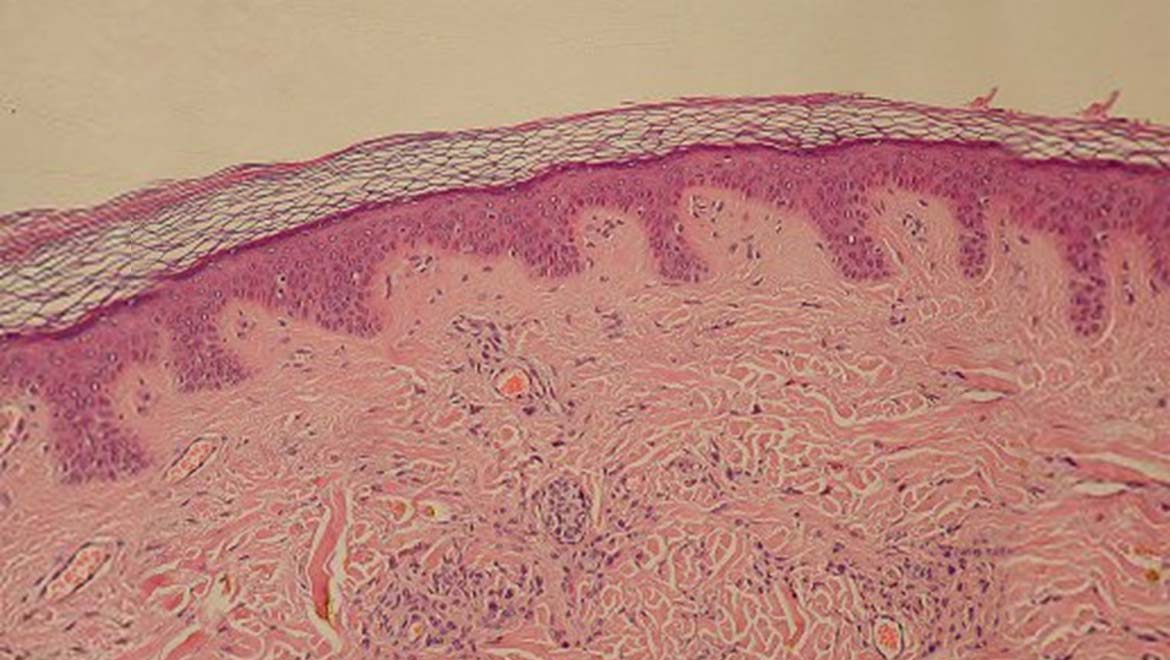Discover The Body's Largest Organ: Unveiling Its Anatomic Significance
What's the body's largest organ? The skin!
The skin is the largest organ of the human body, covering a surface area of about 2 square meters (22 square feet). It is made up of three layers: the epidermis, dermis, and hypodermis. The epidermis is the outermost layer and is made up of keratinized cells that protect the body from the elements. The dermis is the middle layer and is made up of connective tissue, blood vessels, and nerves. The hypodermis is the innermost layer and is made up of fat cells that insulate the body.
The skin has many important functions, including:
- Protection: The skin protects the body from the elements, including sunlight, heat, cold, and water.
- Sensation: The skin contains nerve endings that allow us to feel touch, pain, heat, and cold.
- Thermoregulation: The skin helps to regulate body temperature by sweating and shivering.
- Excretion: The skin helps to excrete waste products through sweat.
- Immunity: The skin contains cells that help to protect the body from infection.
The skin is a complex and vital organ that plays a key role in our overall health. It is important to take care of our skin by protecting it from the sun, moisturizing it, and avoiding harsh chemicals.
FAQs about "what's the body's largest organ"
This section provides answers to frequently asked questions about "what's the body's largest organ", offering clear and concise information.
Question 1: What are the functions of the skin?The skin performs several essential functions, including protection, sensation, thermoregulation, excretion, and immunity. It acts as a barrier against external threats, enables sensory perception, helps regulate body temperature, aids in waste elimination, and supports the immune system's defense mechanisms.
Question 2: How can we maintain healthy skin?Maintaining healthy skin involves adopting practices that protect and nourish it. Essential measures include shielding the skin from excessive sun exposure, regularly moisturizing to prevent dryness, avoiding harsh chemicals and irritants, and adopting a balanced diet that supports skin health.
Remember, caring for your skin is crucial for its optimal functioning and overall well-being. By understanding its significance and implementing proper skincare practices, you can maintain the health and vitality of your skin.
Conclusion
In exploring "what's the body's largest organ", we have delved into the remarkable functions and significance of the skin. As our largest organ, the skin plays a multifaceted role in protecting, sensing, regulating, excreting, and defending our bodies.
Understanding the importance of skin health empowers us to prioritize its care. Simple yet effective measures, such as sun protection, hydration, and nourishment, contribute to maintaining the health and vitality of our skin. By valuing and nurturing this vital organ, we invest in our overall well-being and embrace the beauty and functionality of our largest protective barrier.
Discover The Number Of Captivating Episodes In "Wotakoi: Love Is Hard For Otaku"
Marta's Transformation In "Arrested Development": A Character's Evolution
Download .NET Framework 3.5 Offline Installer: Get It Now

